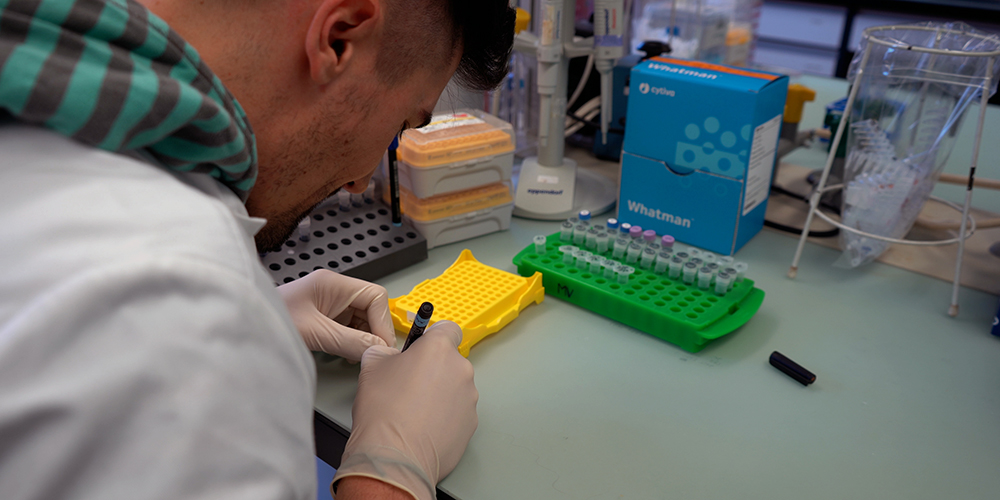
New Covid-19 vaccine successfully tested in Switzerland

Researchers at the University of Basel have successfully tested a new Covid vaccine in animal studies. Based on modified coronaviruses, the vaccine would be administered orally or nasally. Clinical trials in humans are due to follow.
The vaccine is based on a “modified coronavirus that can enter body cells and trigger an effective immune response but cannot multiply in the body”, the university said in a statementExternal link on Monday.
The new “single-cycle” vaccine is based on a specially adapted version of the virus that can be produced in a laboratory. In cells of the vaccinated person, however, the single-cycle virus cannot replicate further after the initial entry.
+ Swiss claim Covid vaccine success despite side-effects
“Among other things, we remove a specific gene from the blueprint for the viral envelope,” explained Thomas Klimkait of the Department of Biomedicine at the University of Basel. If this envelope component is missing, no new virus particles can be formed. Yet, the body cells still produce the remaining components of the virus and present them on their surface to the immune system, which recognises the viral components and builds up effective immune protection.
Basel researchers successfully tested the vaccine on hamsters using nasal drops. The vaccine effectively protected them against the disease and prevented virus transmission.
+ Coronavirus: the situation in Switzerland
The new vaccine concept, developed in collaboration with the company RocketVax, can also be rapidly adapted to new variants and even to other viruses, the researchers claim.
“Although safe and effective COVID-19 vaccines have been available since early 2021, SARS-CoV-2 continues to spread, with new variants continuously emerging. In some regions, the population lacks access to vaccines; in others, there is a lack of confidence in the novel mRNA vaccines. New vaccines that are easy to store and administer and that build up effective immune protection would be an important step toward keeping the SARS-CoV-2 coronavirus at bay in the long term,” the university said in its statement.
A patent has been filed. The research team is now planning vaccine production and a human study in Switzerland.
On May 5, the World Health Organization (WHO) announced that Covid is no longer a “public health emergency of international concern, or PHEIC” – the highest possible status under international health regulations, which was first applied to Covid on January 30, 2020. This change follows advice from WHO experts.
+ Covid-19 emergency is officially over – what does that mean?
WHO Director-General Tedros Adhanom Ghebreyesus said the pandemic had been “on a downward trend for more than a year, with population immunity increasing from vaccination and infection”.
Many countries have long dropped many of their pandemic restrictions. Switzerland announced the lifting of all Covid-19 restrictions as of April 1, 2022.
Despite progress in fighting Covid-19, health officials warn the virus will not fade away.
“The emergency phase is over, but Covid is not… while we’re not in crisis mode, we can’t let our guard down,” said Maria van Kerkhove, the WHO’s technical lead for Covid, on May 5.
Covid-19 will now be managed alongside other infectious diseases, but the risk remains of new variants emerging that cause new surges in cases and deaths, warns Tedros.
In Switzerland, the number of new lab-confirmed cases has fallen considerably since the start of the year, when federal authorities stopped covering the costs of tests. Covid meanwhile continues to circulate in Switzerland, albeit at a low level.

In compliance with the JTI standards
More: SWI swissinfo.ch certified by the Journalism Trust Initiative

























You can find an overview of ongoing debates with our journalists here . Please join us!
If you want to start a conversation about a topic raised in this article or want to report factual errors, email us at english@swissinfo.ch.